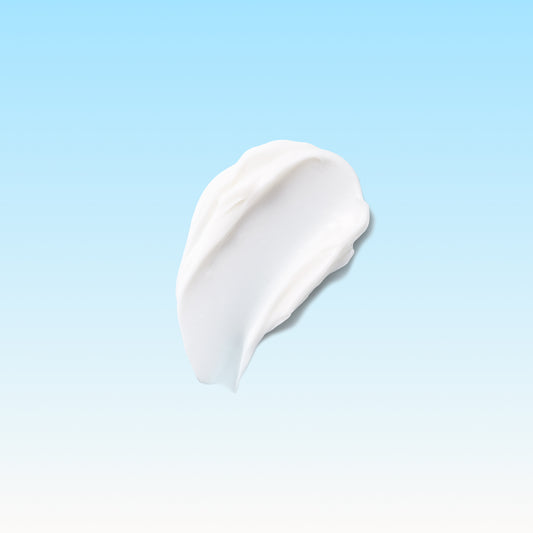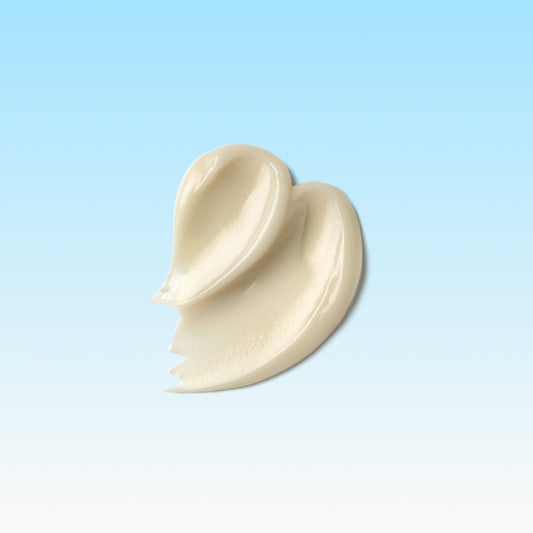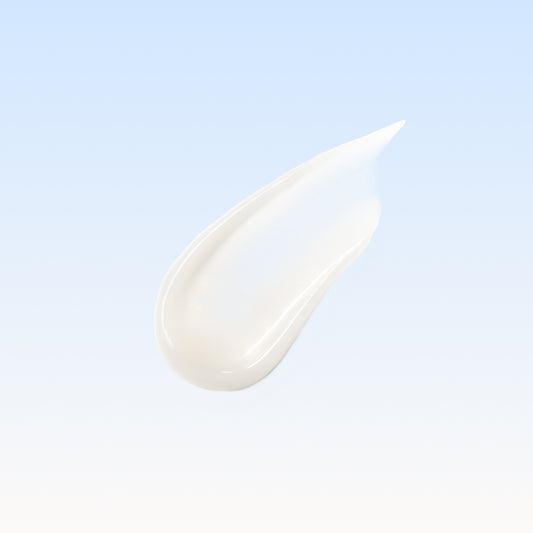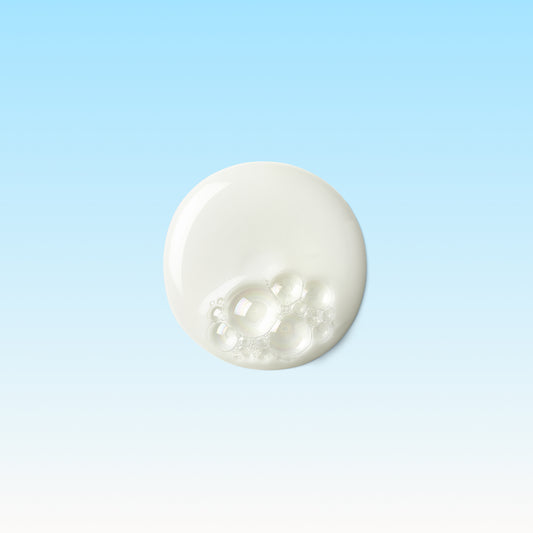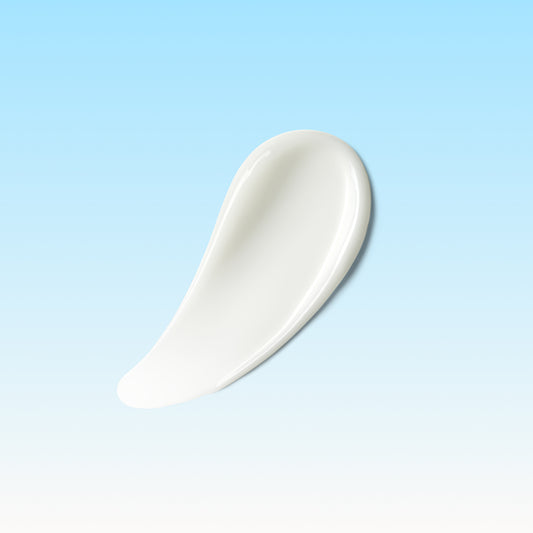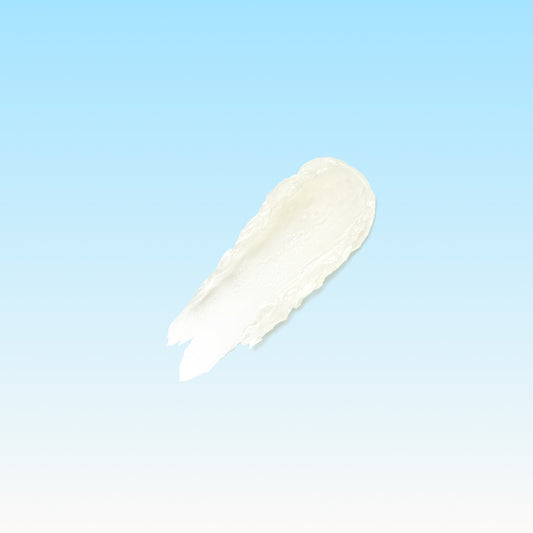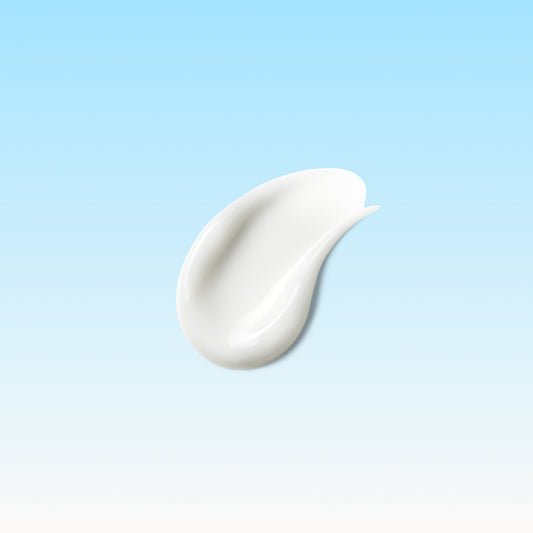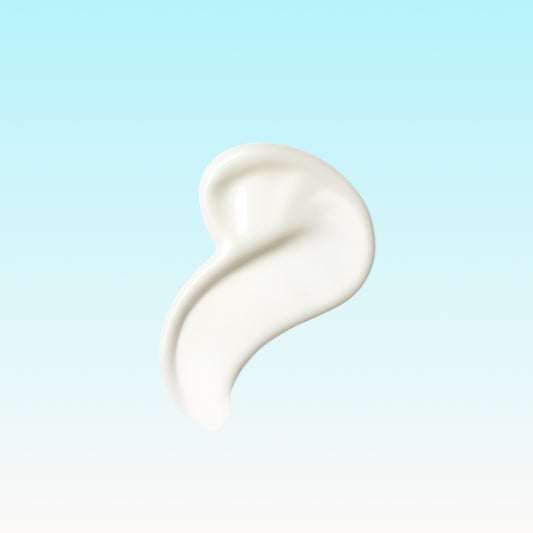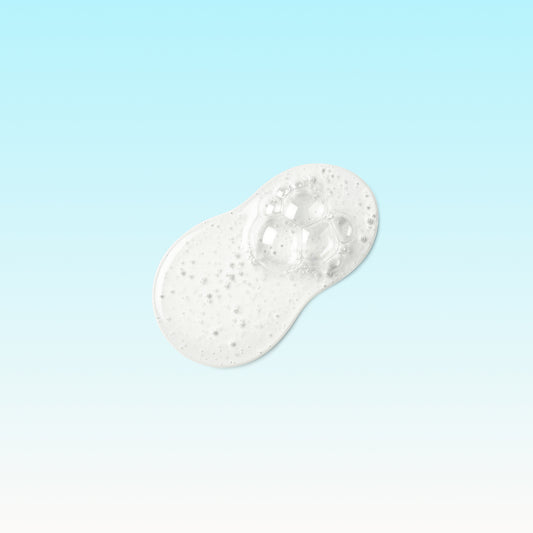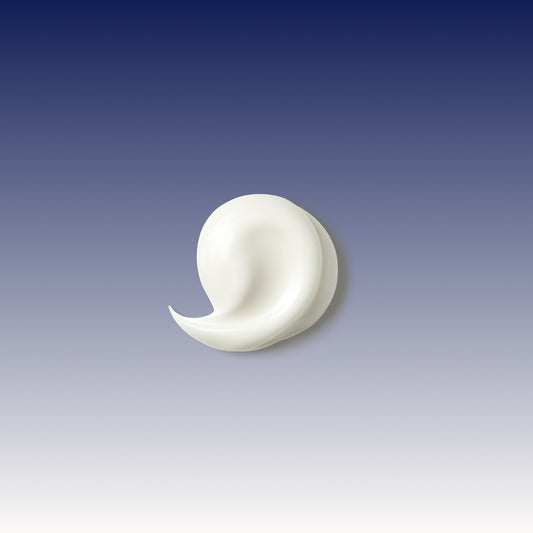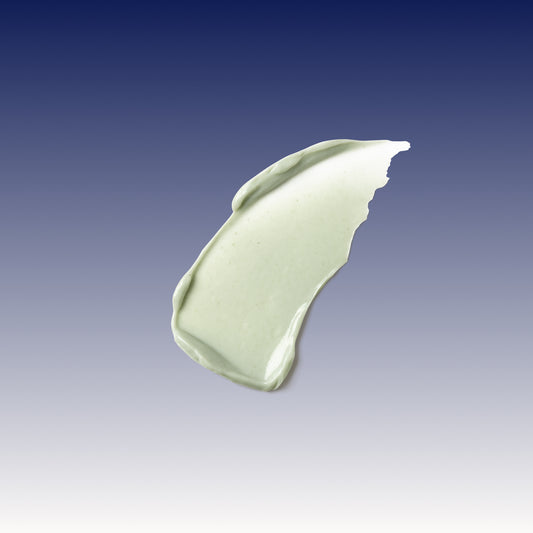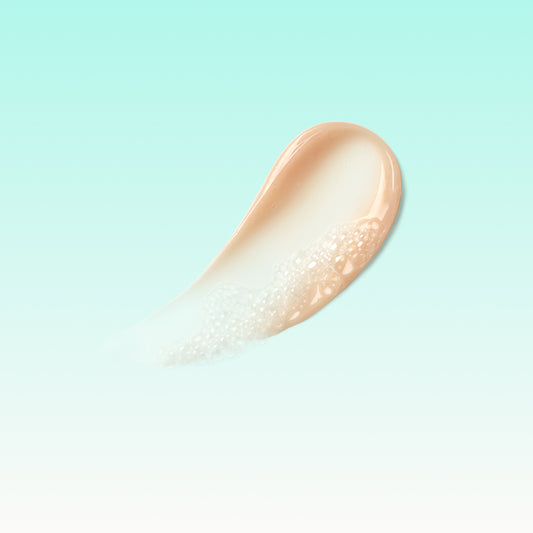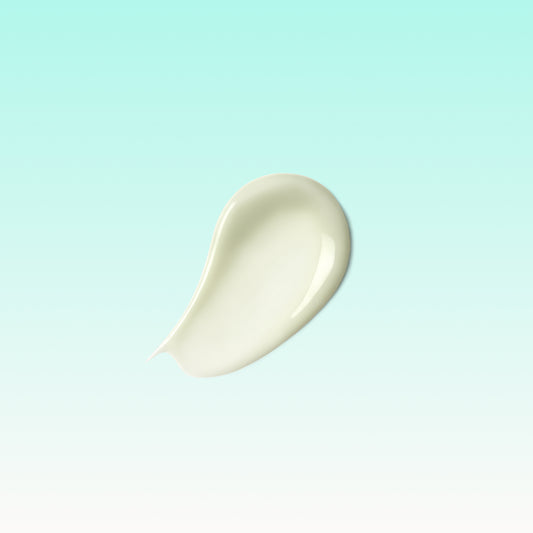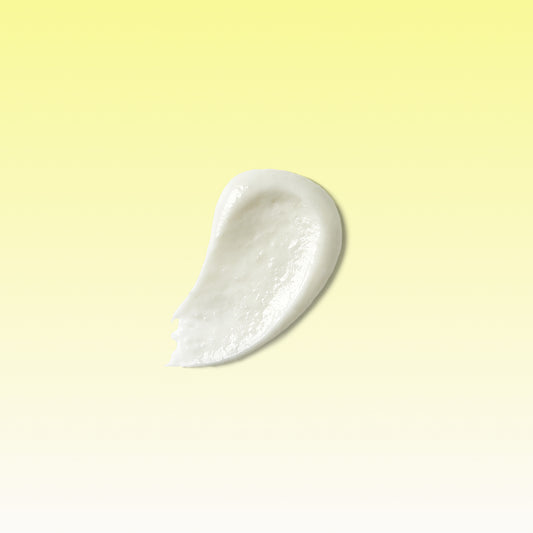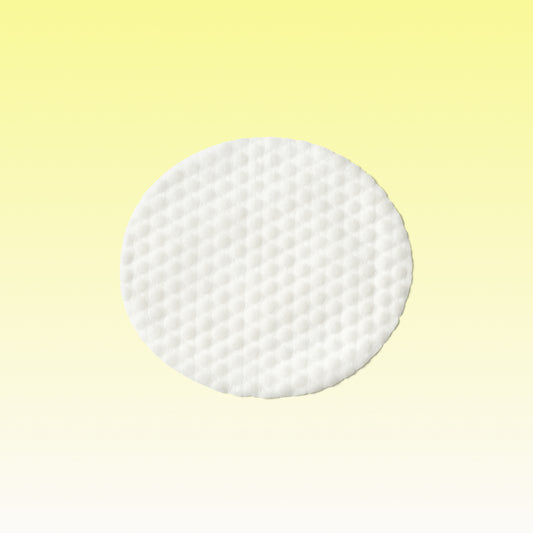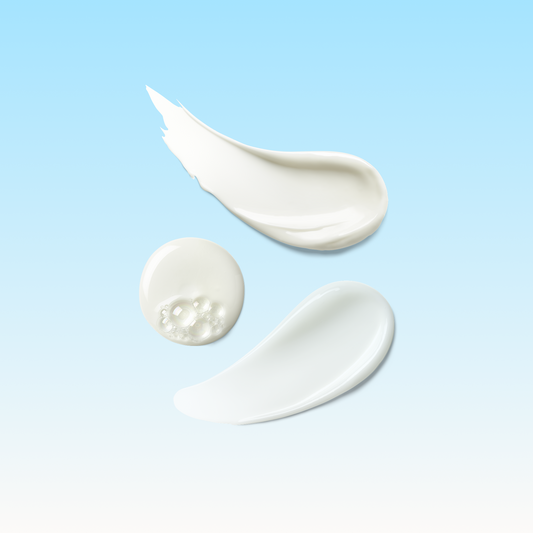S2 E9: All About Psoriasis: The Facts, Flare-Ups & 411 with Dr. Lio
[Amy Gordinier] All right, Dr. Lio. Well thank you so much for coming back on Total Skin Nerds. It's so great to have you.
[Dr. Peter Lio] Thank you. It's a pleasure to be back.
[Amy Gordinier] Well, we love having you and we want to do a deep dive into psoriasis in this episode because you've recently helped Skinfix develop an OTC topical for psoriasis, and we want to really pick your brain about this skin concern, which is tricky and hard to treat. And one of the podcasts I was listening to with you earlier today in preparation, you talked about how this condition goes back for hundreds of years and that there was some evidence of it in the Egyptian sort of history. So tell us a little bit about that.
[Dr. Peter Lio] Yes, psoriasis we think has been around since the beginning. In fact, it's interesting to look at the history of it. I went to this session at our American Academy of Dermatology meeting once where a scholar who was a biblical scholar was talking about when we think about the Bible, they use the term leprosy. They talk about lepers and healing of the lepers. But apparently, and I'm not an expert in this particular domain, but this is what this expert was saying, there was no leprosy as we know it. This mycobacterial infection of the skin was not endemic to the Middle East around the time of the New Testament being written or being written about. And what some people realize is that the word that was used for leprosy may be a mistranslation.
I believe it was zarate in the original Hebrew and I guess Aramaic kind of proto Hebrew that was originally there, and it was translated really just to mean like a spot. And in Greek that became lepra. And so then there was this funny kind of a false cognate with leprosy, but it may have just referred to a spot.
All that being said, one of the things he said it could have represented was psoriasis. So it may have actually been instead of leprosy, it could have been psoriasis all the way back in those times. But yes, as far as we know, the ancient Egyptians talk about it. At least adjacently, we think this has been around since the very beginning.
[Amy Gordinier] Fascinating. Fascinating. So tell us a little bit about what is psoriasis?
[Dr. Peter Lio] Psoriasis is a chronic inflammatory condition that manifests on the skin, but really is more than skin deep. There definitely is some systemic inflammation, and we're learning more and more that it goes beyond the skin for many, but not all patients, some patients it really does stay on the skin. And on the skin it usually presents as these red scaly patches, and the scale tends to have kind of a characteristic appearance. It's often very silvery and sometimes it can become so thick and so impacted that it almost looks like an oyster shell. Some people will call it ostraceous, so we can see this or micaceous from the Latin word micare, to flash, like mica the mineral.
So you can see this micaceous, ostraceous or silvery scale on these patients. It can be itchy and uncomfortable. Sometimes there are variations where it can actually come up in the folds and kind of be irritated and eroded. It can get kind of moist and uncomfortable in the armpit or groin folds. But typically we're seeing it as this drier condition and it's often thickened skin and it affects the scalp, the elbows, the knees, but it really can affect all over.
[Amy Gordinier] And so what do we think causes it? You mentioned there could be systemic inflammation. Is it linked to specific ailments or illnesses or is it not clear? Is it a lot of things?
[Dr. Peter Lio] It's the critical question, and I think it's one of the things that really shows you as much as we know, we know a lot of details. We can talk about IL-23 and we can talk about the T-cells and the keratinocytes and the role of these different factors. But you're absolutely right, when it comes to that fundamental question, I don't think we really know.
We understand there's definitely a genetic component to it. It can run very strong in some families. We definitely know that certain things can trigger it. So one of the classical associations is people get a strep throat, and if you get strep throat, that can actually trigger a form of psoriasis. So this is fascinating. We know that the immune system is intimately involved and we think predominantly this is an immune system problem.
But I'll tell you, in the seventies and eighties, there was actually kind of a great debate. Some people thought it was really just a problem with the skin cells, not so much the immune system, but the skin cells themselves. And there was this sort of question, well, is it one or the other or both? And then I think we kind of answered the question with some of the biologic agents and even earlier, some of the immunosuppressants that were really focused on the immune system and not so much on the skin, but made a big difference.
So I think we understand that this is an immune problem, but it's a little bit more complex than that. There's a genetic background, but there certainly are environmental triggers, and we would love to unravel this completely so that we could just cure it, that'd be the best or prevent it.
[Amy Gordinier] Wow. So a lot of research has gone into understanding psoriasis and still lots of questions.
[Dr. Peter Lio] Many.
[Amy Gordinier] Many questions. So can you explain to us how does it differ from eczema? What is the difference between those two conditions?
[Dr. Peter Lio] Definitely, and they are sometimes lumped together because they do share a lot in common. They're both kind of these chronic inflammatory skin conditions. There's no doubt that some people can actually have both. They can have an overlap, and I see that more commonly in kids, but they differ a little bit.
The eczema tends to be more itchy, so that tends to be the dominant symptom. People are like, oh, the itch is driving me crazy. Eczema also tends to be more prone to infection. It can get open and oozing and then staph bacteria goes crazy. And in my experience at least, eczema is a little bit more complex because it not only has the inflammation and the itch and the barrier, but it also, it can bring in some other aspects. There's kind of a behavioral part too, because there's that itch scratch cycle, and we don't see that quite as much with psoriasis.
Sometimes we do, I have some patients who scratch and rub, but this behavioral piece and the stress piece with eczema tends to be a little bit more pronounced. But at the end of the day, they have a lot in common. And certainly I see patients that have both.
The biggest issue from a treatment standpoint, not only of course when we're talking about our more systemic treatments that are specific to these conditions, but for topical treatments, our eczema patients tend to be extremely sensitive, so we have to be ultra careful. They can get irritated.
The psoriasis patients' skin tend to be a little tougher. And in fact, because of all that scale and dryness, sometimes the biggest problem is just dealing with this excess keratin. So we want to be a little bit more aggressive and exfoliating, and that's something we often can't do with atopic dermatitis or eczema because they can irritate and backfire.
[Amy Gordinier] Interesting. And how does psoriasis present on different skin tones too, Dr. Lio? I think we're so used to seeing sort of Fitzpatrick one to three skin tones when we look on Google to see what a skin condition looks like. But how does it present on a darker skin, does it look different?
[Dr. Peter Lio] It definitely can. I think that when we think about it across different skin types, some of the problem is that as we get more melanin, more melanin rich skin, this richly pigmented skin, of course the job of melanin is to absorb UV light, but also it absorbs visible light, so the redness can look much less to the eye, and this is a real danger.
So when I see a patient with darker skin, I have to be extra careful. It's easier to sort of be dismissive and say, oh, it doesn't look that red, it doesn't look that bad. But you have to realize that you can mask some of the redness. So in somebody who's very, very fair, the redness stands out, and in a way it almost is too much. Even the tiniest bit of flesh looks bright red. So you really have to kind of calibrate to some degree to make sure we're not over or under diagnosing.
The other piece is I think the distribution can be a little bit different and the subtypes can be a little bit different across different groups, but I think at the core we really do have the same basic concept of inflammation, redness, and then that scaliness, that hyperkeratosis where it can be dry and scaly and flaky. And so I think that that part is really universal.
[Amy Gordinier] And can it cause scarring? Can psoriasis cause sort of post-inflammatory hyperpigmentation?
[Dr. Peter Lio] Yes, it certainly can. And typically it will not cause true scarring. We won't get a permanent scar like you would from a surgical incision or a deep wound, but it can leave color problems for many months or even years. I have some people where we've gotten their psoriasis better, but there is pigmentary change that's left over. Now, typically in most cases that eventually will go away, but it can be excruciatingly slow. They're like, my psoriasis is better, but why does my skin still look funny?
[Amy Gordinier] Yeah. Okay, interesting. Now, I've often read about links between psoriasis and other health concerns that it can almost be a red flag that there might be something going on with the heart or other issues. Is that just Dr Google or is that real? Is there a connection?
[Dr. Peter Lio] I definitely think there are, and over the years we've gotten more and more sophisticated, and I have to say it's frankly, it's more and more complex because how to really counsel our patients about these things. Some of the risks are higher, but they're not super high, they're just a bit higher. So it's difficult to counsel. And I think some of the things we've seen is the connection with, as you say, heart disease, these metabolic syndromes.
Of course, I mentioned the arthritis connection for some patients. So there are some of these risks that are a bit elevated. And of course with atopic dermatitis or eczema, we have another set of risks, some similar ones, but we also have the allergies and things like that that can go along with it. But it is difficult to counsel sometimes because the truth is the majority of psoriasis patients are otherwise pretty healthy.
And so we don't want to scare people, we don't want to freak them out. I think the biggest thing is we want to encourage overall healthy lifestyle, healthy eating because there's no doubt diet plays a role. Things like alcohol can play a role. My heavy drinkers tend to have much more severe disease, and if they're able to cut back, they tend to do better. So we want them staying physically fit because we know excess weight can also increase inflammation in the body, so trying to stay as fit and trim as we can.
And of course if you have arthritis or things like that, that makes it that much harder because now it's tougher to be mobile and be active. And of course having a good relationship with your primary care physician too. As dermatologists, we're lucky because we really get to be kind of the expert on one organ system, but that doesn't mean we're experts on the whole body.
So we really are part of a team and I like to make sure my patients are seeing their primary care doc and other specialists as needed. If they have a family history of heart disease and psoriasis, I think, boy, I really want to make sure someone's watching you closely, making sure that your lipids are good, making sure again that you're in good cardiovascular shape because those risks maybe not super high, but now they're higher than even baseline. And we know, of course many people suffer from heart issues and we know that's an important cause of mortality in the US.
[Amy Gordinier] Okay, interesting. So now when you've diagnosed a patient with psoriasis, and I know it's probably not one size fits all, but what are your sort of standard treatment modalities that you would start to think about or look at?
[Dr. Peter Lio] We are lucky. We have kind of a nice broad palette to choose from, depending a little bit on the patient's preference. We really try to make a shared decision making. We want to go through what are your goals, what are your concerns, what would you be comfortable using, and making then kind of a plan together. And then we also know that this is going to be dynamic. I often talk about it like a game of chess, this is my opening move. I think it's a good one, but might not be. And then we're going to respond depending on what your skin does.
So I think for most patients though, whether they're super severe and I'm going to start them on a powerful biologic medicine or if they're really mild and maybe localized, they just have a couple of spots, we're going to decide for the prescription part.
But then for 100% of them, I'm also going to have some over the counter parts of the story as well. And that's going to mean a gentle cleanser. That may mean some supplements that I want them to do to make sure they're kind of getting enough vitamins and minerals to be in good shape and good balance, and then it's going to be a moisturizer. And depending on their skin and their concerns, one of the exciting things would be can we use a moisturizer to not only smooth and soften the skin, which is what we want, but also maybe to get rid of some of that increased keratin, those thick scales, which can also be unsightly and leave kind of a dandruffy flaking and scaling thing everywhere.
So if we can do that, I think we can speed things up. And in theory, especially if we're getting rid of some of that excess dead skin, we can actually enhance the ability for our topical medicines to work because we know that's a problem when psoriasis skin is so thick and all that scale, sometimes the topicals just don't work well because we think they can't penetrate in the same way they can with normal skin. So using our moisturizers can really help. And so I'm always building that into their whole plan.
[Amy Gordinier] That's so interesting. I hadn't thought about that piece as sort of clearing the way for the prescription to get into the skin more easily. So would you say the moisturizer with some possibly exfoliating acids first and then your prescription topical after, or would you do it the other way around or does it just depend on how the patient tolerates?
[Dr. Peter Lio] I love it. Yes, and I think we have some options. So typically what I like to do is I like to put the medicine on first in order of application, kind of let that soak in. This way if there is something a little bit more active, maybe an acid like glycolic acid or a beta hydroxy acid in the moisturizer, I don't know how that might interact with the medicine. So I'd like to put the medicine on, kind of give that some time and then I might use the moisturizer everywhere.
Now, of course, for that first application, that means the moisturizer hasn't helped. But as we go day after day, that moisturizer little by little and especially because we're going to do things ideally twice a day and maybe even a moisturizer even a third time, maybe they can do it in the morning and the evening, and then maybe if they're going to take their shower, they can even do it after their shower at some point as well, so we can really try to get it two to three times a day to moisturize.
There was a wonderful paper about a decade ago showing that just moisturizing alone significantly improved psoriasis. And that's why of course when they do studies, they always have a control group and that control group can't be just doing nothing. It's usually putting a vehicle on them, kind of a moisturizing base because it really can make a difference.
[Amy Gordinier] Interesting. And you talked about biologics. Explain to us, I know they're probably pretty complicated, but they're immunosuppressants, but they're working in a more targeted way. Is that correct? How do they work on psoriasis?
[Dr. Peter Lio] It's been incredible. We've had this real renaissance of understanding with psoriasis and all these treatments that have come from a better understanding. I always call it this kind of virtuous cycle of drug development. We learn more about the condition, we get better medicines, then we learn more about the condition from those medicines and so on and so forth. And we are at a very high level with psoriasis.
So historically we would use things like topical steroids and they're still used very commonly because they are anti-inflammatory, they also kind of help thin the skin, which is a good thing In psoriasis, it's not so good if you already have thin skin, but when it's really overly thick, then it can help reduce that. It's also anti itch, but it's very broad spectrum and we can't use that all the time. We have these topical vitamin D analogs that can be helpful as well.
They're a little bit safer, which is kind of nice. We have our non-steroidal agents. There are actually two new agents that just were approved in the US in the last year or so. One of them is called tapinarof, is the drug name, a topical once daily medicine that's anti-inflammatory, anti itch, non-steroidal, and then another one totally different but similar in that it's again, non-steroidal once daily, and that one's called roflumilast.
So these are neat topical agents and they can be used with a lot of patients, but if it gets beyond that, then we're talking about systemic medicines and that's where we get to the biologics. So before the biologics, we would use things like cyclosporine, which is a powerful broad immunosuppressant.
It kind of knocks everything down and puts you at risk for cancers and infection and all this kind of stuff. But it really helped, it can shut off bad psoriasis in a lot of patients. Or we'd use methotrexate, another drug that's been used for many, many decades, but similarly has a whole bunch of potential side effects.
And then people were able to raise antibodies that can target specific aspects of the immune system. So unlike very broad spectrum immunosuppressants which kind of shuts everything down. These guys now can be targeted down to one cytokine or one receptor, and in so doing, they can just get one thing that seems to be too much and bring it down without affecting everything else. And so right now, I'd say the current state of the art, and there are a number of them, I think there's more than a dozen of them on the market in the US, but there's the IL-17 inhibitors and then there's the IL-23 inhibitors kind of broadly.
There's a lot of little details, but these two classes of biologics are extremely powerful and honest to goodness, incredibly safe, especially compared to broad spectrum immunosuppressants that we had in the past. And it's kind of like an embarrassment of riches. We can talk to the patient, I'll be like, we have a few options. What we can see which one your insurance covers the best or which one they are interested in.
I have a patient came in today and said, my cousin's on this one, can I do the same? I said, sure, that's a great one. It's one of the top two. So we can use those. And what's remarkable is some of them are as infrequent as once every three months, you get a shot once every three months, you do it at home. For many people it clears everything up.
[Amy Gordinier] Oh, amazing. Amazing. And then what about phototherapy? I watched a couple of podcasts and read an article from you about phototherapy, which sounded pretty cool.
[Dr. Peter Lio] I love it. It's one of my favorite things, and it's often kind of skipped over because it's an old treatment. We've used it for a long time, but really we get to harness the power of light. And in particular nowadays, most of the phototherapy we're doing is narrow-band UVB, ultraviolet B. And so it's very filtered, it's very focused.
We can treat your whole body or we even have, there's a laser handpiece one that you can actually do to targeted areas, which is incredible and really powerful. Two to three times per week, takes a month or two to start kicking in, but when it kicks in, it can get people really much better. And what I love about it is, no drugs. This is literally just the light and it often puts people in a remission. So I often say, we'll do phototherapy for three months, six months gets you feeling really good.
If you're responding great and everything's clear, many patients are able to drop down to once a week for a bit and then take some time off. I have a lot of patients who then are able to take the entire summer off and then maybe as we get into the fall and the winter and they say, can we go back in? I would like to do my treatments again. I was really feeling great, my skin was great, and it's fine to do that. And there is a tiny increased risk of skin cancer if you do it for a very long time, really years. But it's pretty small overall. And so I think that the risk benefit analysis is favorable for many patients. And even if we don't do it for years and years, maybe we do it for a few seasons, then maybe we go to something else we rotate so as not to overexpose them to UV.
[Amy Gordinier] And so would a patient have to come into your office or a phototherapy place to have it done twice a week? Is that typically how it works?
[Dr. Peter Lio] Exactly. Usually they're based in doctor's offices. There are some home units we can get, but they're a little trickier sometimes. And sometimes people say, well, can I just go to a tanning salon? We don't want them to do that because that is a different kind of light that's typically UVA, much more damaging, really designed to get you tanned and not as therapeutic.
And then sometimes people say, well, can I do red light therapy? I'm a spa near my house has red light LEDs or something. And the truth is, I don't know that much about the red light LEDs and psoriasis. It's kind of gentle and anti-inflammatory, but it probably doesn't do that much for either eczema or psoriasis by itself. So it wouldn't hurt, but it's really something fundamentally different.
[Amy Gordinier] And how long are they under the light for each treatment?
[Dr. Peter Lio] Generally speaking, it's very fast. So it depends a little bit on the calibration of the machine, but it could be literally as little as 10 or 30 seconds and it's never more than a few minutes you're in the box.
[Amy Gordinier] Okay. And is it painful or is there any concern about exposing parts of the body that don't have psoriasis flareups? Or are you able to just go in and get treated?
[Dr. Peter Lio] Yeah, no, should not be painful. You can get a sunburn. There are situations where that can happen, but generally speaking, it feels like nothing. We do protect your eyes. If we're not treating your face we'll protect your face. We actually put kind of a cloth over it. You generally always protect your genitals. The genitals aren't really designed to get UV, but otherwise you can just get your whole body. A guy walks in basically in a bathing suit or kind of like a Speedo type trunks and just gets their treatment and they're good. And if it's done correctly and we're paying close attention, very, very safe and very effective.
[Amy Gordinier] And how many doctors would you say are treating with phytotherapy or phototherapy?
[Dr. Peter Lio] Yeah, I like that. Most dermatology offices should have one. So I think any dermatology office that's been around, because it really is a useful tool. There are some of the younger generation I think are less likely to get it because it's not lucrative for the office. Generally speaking, it can be more headaches than not. And it does take up space and stuff, and you need someone to actually run the machine.
So I feel like it is sadly maybe a dying modality in some ways. But I'm trying to fight the good fight and keep it up because for some people it really can be a game changer. And even if it's not the only thing that they do, so again, maybe they're doing phototherapy, but we're still using our topicals and we're still using our over-the-counters or maybe it's part of their overall plan, we're going to take a few months off and then use a biologic and maybe come back to it. So there are a lot of options.
[Amy Gordinier] One of the podcasts I listened to, you talked about baking soda, putting a couple of cups of baking soda into a bath, which I thought was fascinating for psoriasis. Do you know why that works?
[Dr. Peter Lio] So psoriasis, as we say, has been around for a long time. So there's a lot of strange stuff and you know I like a lot of these quirky alternative treatments and I like to think down these lines, but that was a neat paper showing that just plain old baking soda worked fine to help bring it down. Obviously that's not going to be the whole treatment, but I have had people do baking soda baths.
One of the other treatments that I'm obsessed with, one of the natural treatments is indigo naturalis. So the indigo plant can be powdered and put into just kind of a moisturizer base. And that actually has been shown to have a pretty impressive effect on the psoriasis.
There's a beautiful paper that they did, a randomized double-blind controlled trial with the control group being the moisturizer base, and it did much better. So we have a version of this made up for patients. Sometimes it can be compounded and again, that would be the treatment, and then we'd still use it with over the counter type moisturizer, but really neat.
[Amy Gordinier] And is there any side effects to using indigo as far as you've seen?
[Dr. Peter Lio] Indigo, really safe. In the trial really they had no issues. And in real life, I've given it to hundreds of patients by now, and thank goodness, knock on wood, I've not seen anything bad. The worst case is some people say, eh, it didn't do much. It's not a super powerful treatment.
[Amy Gordinier] Right. Amazing. Wow. So is psoriasis in your opinion, increasing in terms of the percentage of the population, are cases on the rise?
[Dr. Peter Lio] To my knowledge, they are pretty stable is my understanding. With atopic dermatitis that's going up and up and up. So we're in the midst of kind of an epidemic, but psoriasis seems relatively stable. It seems like it hovers around one to 2% of the population depending on who you ask, but that's a lot of people, if you're at a big party, at least several people in that room are going to have psoriasis.
[Amy Gordinier] It was brought to my attention by one of my colleagues that the AAD sent something out about the connection between the wildfires and the sort of smoke in the environment and psoriasis flareups. Are you aware of that? Does that make sense to you?
[Dr. Peter Lio] Yes. I think one of the papers that I've been very interested in and was looking at, the role of these diisocyanates, these compounds that are present in wildfires are also present I think in automobile exhaust and certain things like that. They have an effect on the microbiome very directly.
And in the wake of the California wildfires, there has been an uptick in adult onset atopic dermatitis and perhaps psoriasis too, if that's what you heard. I had not heard that. But atopic derm for sure, and we know that this may be connected to the microbiome in the skin barrier. It wouldn't surprise me at all though, because again, psoriasis also has a problem with the microbiome and a problem with the skin barrier. So it would fit very nicely that some of the same things could actually trigger it.
[Amy Gordinier] And is there a need for sort of an antibacterial component to a topical treatment with psoriasis? Is there any bacterial infection associated?
[Dr. Peter Lio] So maybe. I would say that it's one of those funny situations. Historically we've said that psoriasis patients are less likely to get infected than eczema, and we think it's because they have a lot of neutrophils, a lot of immune cells that are right there in the skin that are good at fighting infection.
That being said, I think we're revising some of that. I think people are starting to realize, boy, maybe this is really imbalanced. So there could be a need to help shift it in a better way. And this is again, just kind of really showing how much work we have to do still. There's still so many unanswered questions.
[Amy Gordinier] Interesting. So fascinating. So in your opinion, you talked a little bit about seeing patients go into remission with phototherapy. Is psoriasis curable? Is it something that, have you seen patients go into complete and final remission, or is it something that's kind of always there under the surface that you're just trying to manage?
[Dr. Peter Lio] Yes, the C-word is a big one. The cure is a big word. I would say it's probably not curable, but I do have a lot of patients who go into a deep remission and have not needed any significant treatment for years. So that's about as close as we get, but I'm just always hesitant to say it because I think some people after a while say, can I go back on something? I'm kind of flaring up again. But it's so much better than when they're out of control and miserable and suffering. So I think we can get a lot of people, an increasing number of people too as we get better and more treatments, because sometimes what works for a bunch of people doesn't work for somebody else.
So we need these different options and we can sort of navigate that to get people really clear. In fact, if you look at the new treat to target guidelines for psoriasis in the past few years, they're crazy. It's awesome. It's like the expectation is that you will have essentially clear skin or less than 1%. It's like it's incredible. It's like you basically can't have any psoriasis. You can't even see a little bit essentially all the time. And if you have anything more than that, you're out of control. We got to get you better. That's the level now we're talking about.
[Amy Gordinier] Wow. And so if you did go on a biologic, would you be on it for life or is it something that you kind of wean yourself off of and see what happens and then maybe go back on it? How does that work?
[Dr. Peter Lio] Okay, so I'll preface it by saying that if you had someone else here, they might say something different. I would say maybe the more mainstream answer might be yes, most people need to be on it for life. But I will say that my personal practice has not been to do it that way.
In fact, what I like to tell patients is that I want to get you better for a while, and that might be six months, it might be a year. And if they're doing really, really great and they're... Actually now finally, this is bearing out. So I've been a little bit of a maverick, but now there's actually some literature showing that this may very well be true, that if you get people much better, you actually can pause the biologic for some patients either spacing it out or totally stopping, and there is a group in there that may go into this long-term remission.
So I like to talk about that, and I like to try because part of it is just that I feel I don't want people to be on unnecessary medicine. And if they're doing great for a long time, how do I know we still need it? So I'd like to intermittently, not overly crazy and I don't want a false hope, but intermittently I'd like to take a break and see where we're at.
And if it comes right back with a vengeance, okay, you're not ready. But for these patients that, and I really have them, honest people, you can talk to them, we'll say, yeah, we just stopped because I was doing great for so long and I haven't been on since 2017 or something. It's amazing. So those people now are feeling great, looking great, very healthy and not on any medication. And I feel like that is, everybody wins. That is a winning all around.
[Amy Gordinier] That's awesome. That's awesome. And so diet, you touched on a little bit. What diet have you found or seen work for people? Is there a specific protocol that you recommend or does it vary?
[Dr. Peter Lio] There are a few different things that people have tried. And I will tell you in full disclosure in my own hands, which admittedly may be not as competent as others, but I've not had good luck recommending diets. But I'll tell you a couple. So there definitely seems to be a subtype of psoriasis that responds to gluten-free.
As crazy as that sounds, if they go gluten-free, they seem to do better. And that seems real, because a lot of people, gluten-free is kind of the answer for everything these days. Everybody just says cut gluten it's bad. And to some degree I think gluten can be an inflammatory food, but it kind of breaks my heart because I do love baked goods and I love pizza, and I think it...
[Amy Gordinier] I was going to say, you could never go off gluten Dr. Lio.
[Dr. Peter Lio] It would be real tough. So that being said, I think for the people that need to, we live in a great time to do it because we have wonderful gluten-free options and all these great new flours, this is better. But if we don't need to, if we really think it'll help, I'm all for it. But if we don't think it helps, I hate to just throw stuff at the wall, torture people.
That being said, there really is a subgroup, and one of the papers I read it was, it's thought to be maybe just a few percent, maybe 4% of psoriasis patients would really respond to a gluten-free diet. But that's interesting. The other one that's really controversial and pretty wild is based on, there was a professor he passed away a few years ago, Dr. Haines Ely, and he had a whole theory about psoriasis and it's published, it's actually, it's kind of a wild publication.
It's in a mainstream journal, it's peer reviewed, but it's fascinating. The figure literally looks like he drew it on a cocktail napkin at a party. I've never seen anything published like this. Usually the publisher will kind of fix it, have a professional artist, it's literally, it looks like it was done with a sharpie on a cocktail napkin, but he has the gut and the liver, and he talks about psoriasis really being a gut issue.
And that what happens is that the gut lining becomes inflamed, and then there's translocation of some of the bacteria from the liver and the gut that get into the bloodstream and cause this inflammation, which is really pressing. He was talking about this I think 30 years ago or 20 years ago. So this is, he's way ahead of his time. And his approach to it is to cut out all alcohol, so a hundred percent alcohol and cut out all peppers of all sorts.
So green peppers, red peppers, spicy pepper, all that kind of stuff because I guess it can have these lignins that can damage the bowel lining. So you cut these things out and then he has people taking some of these supplements like this bile acid supplement, like an ox bile supplement, and doing these things can rework the gut. And he reported a number of patients who really had success doing this.
The other thing they take is quercetin with it. So they have this kind of an antioxidant plus the digestive enzyme, the bile, and they really showed that this helped. Now when I've tried it, I've not had such good luck, but his paper is compelling and I definitely have patients get excited about it. I talk about it sometimes, and certainly as we said, alcohol I think can make psoriasis worse no matter how you cut it. And carrying excess weight can make it worse. So I think by altering the diet and eating better, everybody wins.
[Amy Gordinier] Has to help a bit. Quercetin is what's in tonic water, isn't it?
[Dr. Peter Lio] Yeah, I think that's right. The kind of quinones are in there and it's fascinating.
[Amy Gordinier] Yeah, that's so cool. So you can have the tonic water, just not the gin.
[Dr. Peter Lio] Exactly, exactly.
[Amy Gordinier] Okay, very cool. Well, we have a couple of questions from followers who, when we mentioned we were talking to you, they sent in some questions. If you wouldn't mind, I'd love to ask you a couple of these?
[Dr. Peter Lio] Please. Yeah.
[Amy Gordinier] One customer asked, what makes psoriasis an autoimmune disorder and what causes it?
[Dr. Peter Lio] So we think that when we say autoimmune, it's tricky because technically when we use that term, we're talking about things that have a known antigen in the body. In other words, a target where the immune system is attacking.
So the classic autoimmune disease is lupus, and we know with lupus we have this ANA, the anti-nuclear antibodies. So there's actually your own body is making antibodies against the nucleus of your cells. So that's a very clear set where we say Aha, things like rheumatoid arthritis, these are truly autoimmune.
Psoriasis, even though yes, broadly speaking, it is immunity against yourself. We kind of view it as more just an inflammatory condition because there doesn't seem to be, and there may be, you might not know it, but there doesn't seem to be a specific target whereby there's some kind of an antibody mediated attack. It just seems more general inflammation involving the skin.
But broadly speaking, it's an inflammatory condition. And then in terms of the cause, we don't fully understand, but we talked about some of those triggers, things like infection, stress can drive it in some people. And of course things like certain foods and alcohol can drive it in some people, all these different things can contribute to it.
[Amy Gordinier] Okay. And the second question is, how can you effectively remove psoriasis or eczema spots on the face? So how would you treat it on the face?
[Dr. Peter Lio] Yeah, very tough because the face is so delicate and we want to be so careful, and I think our goal is to really thread that needle. We want to do something that's effective, but gentle enough and what we're doing on the face especially, we want to be careful about using too much steroid, too strong of steroid, but we might there be leaning on some of our anti-inflammatory, non-steroidal medicines.
Some of the ones I mentioned, the vitamin D analogs, like calcipotriene. And of course some of those newer medicines, which are cool, the roflumilast topical and the tapinarof, those are really neat. So I use it a lot on the face. And then if it's face plus body and it's more widespread, or if I can't get it at control with those, I might start talking about light therapy. I might start talking about a biologic.
And there's even a couple of pills we didn't mention, it's so much for psoriasis, but there's two pills that are approved, both are non-steroidal, they're not really immune suppressing in the classical sense. One of them is called apremilast and it's a phosphodiesterase inhibitor, kind of similar to the roflumilast topical, that new one. But this is a pill form and it's really neat. It works pretty well and it's pretty safe. It has some side effects. Some people get a little bit of diarrhea, but most patients tolerate it well. And when it works, it's pretty cool.
The other one that came out is deucravacitinib, and that one is a TYK2 inhibitor, so it's part of the JAK inhibitor family, but it's sort of the little guy on the end, TYK2. And it seems to also really help with psoriasis. So there's some new treatments that are even oral pills. So it's really complex. And when you sit down with a new patient, especially a patient who hasn't been on many things, you kind of have this universe to discuss. It's like, let's go over the landscape. We have a lot of things we can try.
[Amy Gordinier] That's great. I mean more choices and more ways to, as you say, put things together into a therapeutic regimen, the better. So that's nice to hear that there are a lot of options.
Now for scalp psoriasis. We get so many clients reaching out to us, begging us to create scalp care products. How do you tackle scalp psoriasis, and what do you do for that? Is it a similar course of treatment or are there other things that you might think about?
[Dr. Peter Lio] It is, it's one of the toughest things I treat. Honest to goodness, it is something that can be so challenging and so difficult for patients because it drives them crazy. It's itchy, it's uncomfortable, it's flaky, it's visible. People see the scalp and see the dandruff. And because, if you got my haircut, it's easy, I can access it easily. But if you have hair, it's really tough to get treatments in there.
So yes, I agree. There's a huge unmet need there. And in fact, sometimes it is so difficult, even with strong steroids and these non-steroidal medicines, we even had foams and sprays to try to help get it in there. I have some patients where we can't get them better and we'll actually default to a systemic agent. As crazy as it sounds, but it's like, listen, we have a significant amount of scalp involvement and I can't solve it, so we're going to have to do something from the inside.
But I do think that keratolytics can be real helpful. So sometimes we'll use shampoos that can help pull off some of that extra scale. We'll also often use anti-inflammatory things that are kind of adjacent. For example, ciclopirox is technically an antifungal, but it has some anti-inflammatory effect too. So that's one of my favorite shampoos to integrate into it along maybe with alpha hydroxy and beta hydroxy acids where we can exfoliate a little bit and then we can use our topical steroids and our non-steroidals and try to get all of those pieces together.
I even do light therapy on the scalp, and that's where that laser, we have this 308 nanometer laser that's really neat. This excimer laser where we can actually put it in this scalp, and even if you have hair, we can kind of separate the hair and get to the scalp pretty well. That can be a very powerful modality.
[Amy Gordinier] Okay, interesting. We did an ad board on psoriasis about six or seven years ago, and before we knew you, Dr. Lio. And one of the things that the dermatologist said to us was that women in particular, especially women like me with colored longer hair, it's very hard to get compliance because people just want to use their high performance hair care. And I totally understand that.
So is that also an issue where people just really want to use their shampoo and conditioner and styling products and don't necessarily want to use the products that are available?
[Dr. Peter Lio] A hundred percent. And I feel like this better than anybody because when you make a product, you know that the patient has to... It's not enough for it just to work. They have to love it. They have to love putting it on. It has to feel good because that is how we get that adherence. That's how we get people to really literally stick to the regimen to keep doing it. And it's a problem.
In fact, today I had a young, young lady who was telling me she was using a product and she goes, I swear, I know it's crazy, but it was bleaching up the hair in a funny way and making my hair brittle and I hated it and I wouldn't use it. So you are prescient. That's exactly what I hear over and over and over. And that makes it really tough because you might have solved the problem with a great medicine, but if nobody wants to use it, then it may as well sit on the shelf. Right? It's not going to do what it needs to do.
[Amy Gordinier] That's the holy grail, I think, in scalp psoriasis is combining that amazing hair care with really effective ingredients that are going to help with the concern. Well, this has been fascinating, just really fascinating and hopefully very informative for our listeners. I'm sure it will be. And we just appreciate all of your expertise, Dr. Lio, and your time, your generous time. Because I know how busy you are. And thank you for joining us to talk a bit more about psoriasis.
[Dr. Peter Lio] Thank you so much for having me. It's so fun and I love getting the word out. And again, I just love thinking about these problems together because putting together the best of prescription and the best OTCs, to me that equals success.















